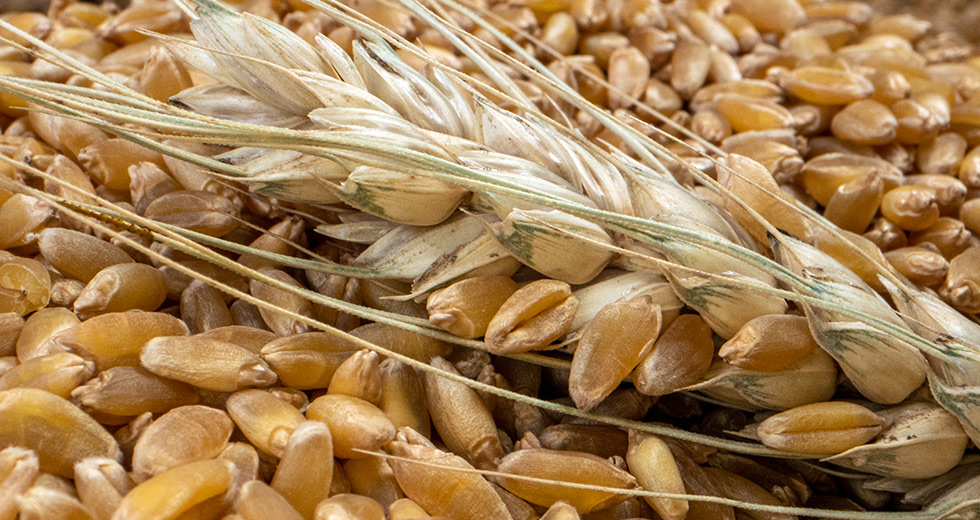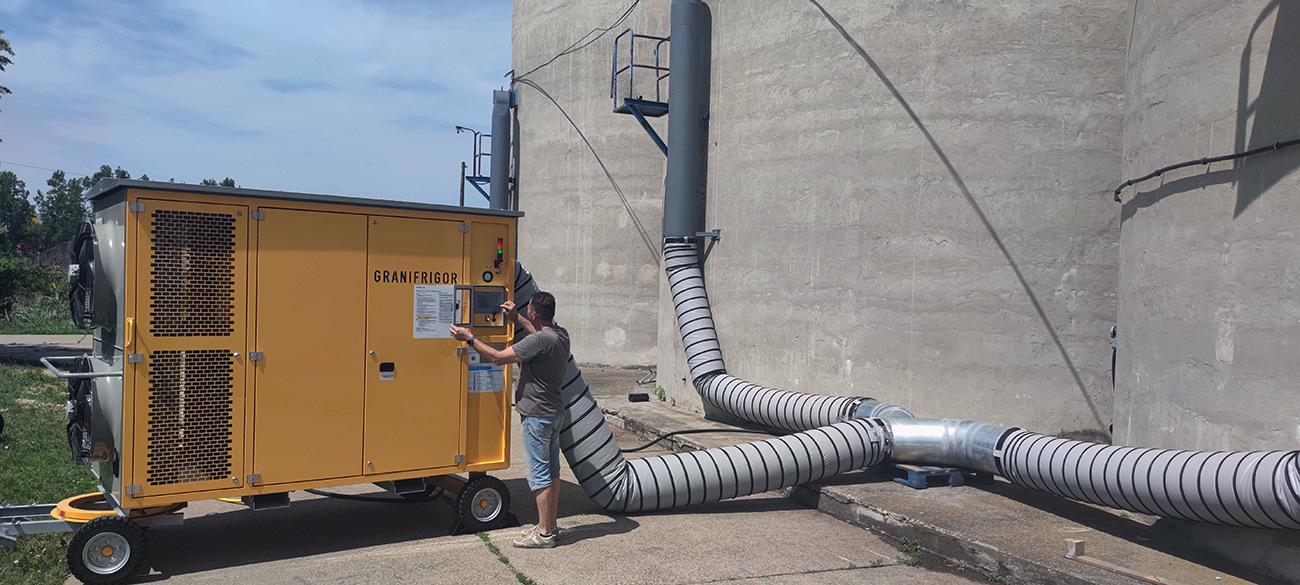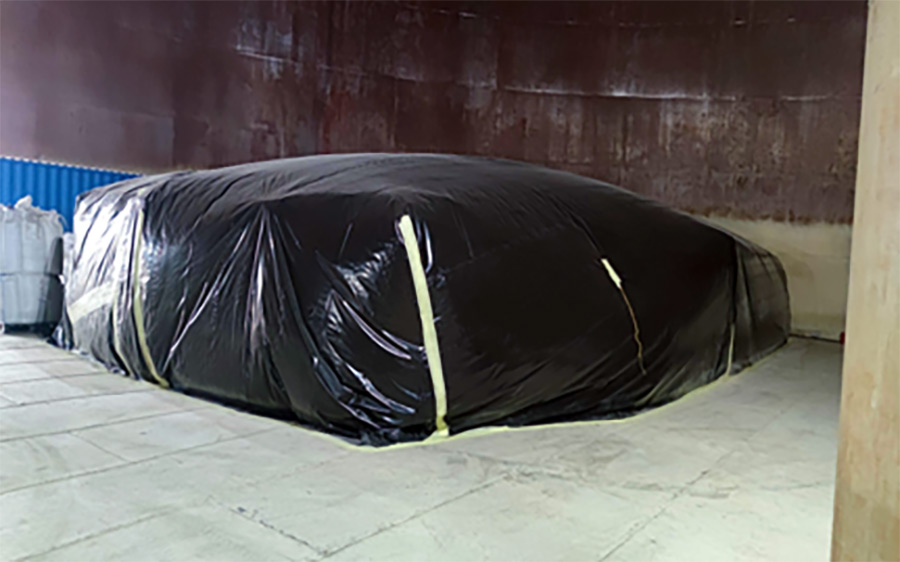Njamito Goes Fairtrade for Cocoa and Vanilla
March 31, 2025Njamito is now Fairtrade certified for cocoa and vanilla! Here’s what that means for farmers, the planet, and the values behind our meal-in-a-bottle.
Read articleCombining cooling with some innovative methods is what makes our silos sustainable.

Let me tell you a story. A story about one of the hardest challenges that farmers face in their pursuit of organic excellence: the persistent threat of insects lurking in the storage of precious crops. And how we’re overcoming this challenge.
While conventional methods rely on chemical warfare to fend off these tiny invaders, the residue they leave behind taints the purity of our food, casting a shadow over its safety and wholesomeness.
And so, amidst this struggle, a band of determined farmers at LoginEKO embarked on a quest for a sustainable solution, one that would shield their harvest from harm without compromising on sustainability principles.
Our journey led us to the doorstep of innovation, where we discovered the power of nature’s own defenses. Drawing upon old wisdom and modern technology, we devised methods that thwarted the reproduction of insects, creating an environment where these pests could not thrive. Through meticulous grain cleaning and strategic cooling, we forged a stronghold against the encroaching tide of infestation.
During the season of 2022 we based our pest control on more primitive methods, a large number of grain cleaning, which at the same time cooled it down to a level that ensures safe storage. But this is contingent on outside temperatures. For the season 2023, we were better prepared, and adapted the old concrete silo to enable active cooling using the Granifrigor device. In this way, we managed to cool the grains much more easily and quickly and bring them to a safe state for storage.
We quickly witnessed the fruits of our labor firsthand. With the aid of the Granifrigor device, we wielded the power to chill our grains swiftly and effectively, reaching a safe temperature for storage – below 15 degrees Celsius – already in September.

This enabled us to preserve the bounty in a state untouched by the ravages of pests. We were excited to find the grain samples free from the telltale signs of insect intrusion, a contrast to the previous seasons, when traces of insects were found in various grain samples.
While this new approach seems to have worked well, it also promises additional benefits, as cooling of grains could lead to the reduction of weight loss due to slowing down of grain respiration, and the reduction of the risk of self-heating and the development of mold on the grain.
And finally, because we cooled the grains properly, the team also had to manipulate it fewer times, compared to the previous season. Unlike the previous season, when we had to clean the grains once or twice a month during storage, we can now safely store the grains for several months without any need for further manipulation.
But even if this method of cooling grains has worked well for LoginEKO this season, the lingering threat is that if temperature rises at any point in time, insect eggs would hatch again.
Thus, we embraced the marvels of modern science, a nitrogen generator from our Dutch suppliers : Peterson Projects (EcO2). With this device, we modify atmosphere within our treatments, reducing oxygen to 1.5% with the help of nitrogen

This treatment is completely harmless to humans because any nitrogen that comes out of the treatment is instantly distributed in the air due to the similarity of their masses.
This also means that it doesn’t require to block the facilities (silos) in which the treatment is to be carried out and people can be present, while in the case of treatment with phosphine and other chemical agents, which are used in conventional farming, for the safety of people, it is necessary to block and not use the silos during the period of a few weeks.
During the four months in 2023 that the nitrogen generator was at LoginEKO place, we treated over 1,200 tons of our products (grain) in our warehouse. We treated the grains at the place where they were stored, by covering them with tarpaulin and gluing it to the floor of the warehouse – in bulk and in big bags. The largest individual treatment was 220 tons.
We were able to monitor the parameters affecting the duration and efficiency of the treatment in real time through an app. After treating nearly all the crops in the warehouse—wheat, durum, rye, spelt, oats, peas, corn, chickpeas, sunflower, and alfalfa—samples were analyzed and confirmed the complete effectiveness of this sustainable method for organic crop storage.
Protecting crops from persistent insect threats is a major challenge in organic farming. By integrating traditional methods with modern technology, we have developed a holistic approach to address this issue. Using nitrogen treatment immediately after harvest and the Granifrigor device to cool the grains, we have effectively safeguarded our crops while maintaining our commitment to sustainability. This strategy not only preserves the quality of our products but also reduces the need for frequent manipulation.
As first harvests of 2024 have already started, we are confident that our refined methods will continue to deliver reliable results. Our journey from basic pest control techniques to advanced solutions reflects our dedication to organic storage. By transforming our approach to crop storage and pest control, we have protected our grains and improved our storage practices. Treatments with controlled atmospheres allow to suppress all developmental stages of insects but provide no protection after treatment. And so we have decided that our new silo would consist of built-in cells that are sealed enough to be able to carry out nitrogen treatment, which will be ready for the 2025 harvest. Stay tuned, as we continue to refine and expand our methods, always striving to preserve the purity and integrity of our crops.
Njamito is now Fairtrade certified for cocoa and vanilla! Here’s what that means for farmers, the planet, and the values behind our meal-in-a-bottle.
Read articleIdealism met reality as we launched our meal-in-a-bottle, Njamito. After 100.000 bottles sold, here’s what we learned about organic food and market adaptation.
Read articleWith organic seeds in short supply, we launched our own organic seed production journey to secure sustainable farming practices.
Read article